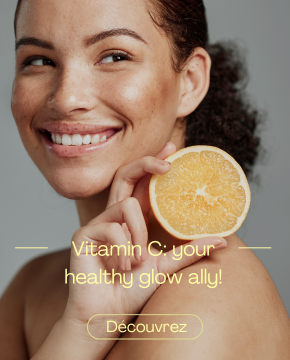SOME PRECONCEIVED IDEAS... NATURALNESS IN COSMETICS
A LITTLE HISTORY
The history of cosmetics goes hand in hand with the history of mankind. Mineral paints based on pigments and fats have been found dating back to prehistoric times. The use of cosmetics has continued ever since, with ointments, oils, perfumes and paints being used for spiritual, ritual or medical purposes. More recently, the 20th century has seen an explosion of products and brands.
While the agri-food sector has undergone a revolution with intensive farming, chemical fertilizers and GMOs, among others, the cosmetics industry has not been left behind. In the space of a few generations, petroleum derivatives, perfumes, silicones and other synthetic products have appeared on the scene. The logical consequence of all these changes, for anyone who hasn't earned a doctorate in chemistry, is simple: consumers no longer know what to think, and are therefore wary of what they eat, drink, breathe or put on their skin.
What's more, new trends and demands have emerged, such as veganism, animal welfare and respect, and organic products.
SOME PRECONCEIVED IDEAS... NATURAL, ORGANIC AND ORGANIC IN COSMETICS
First of all, I'd like to point out that I run a cosmetics company. My opinion is therefore not necessarily impartial, or at least some people will think so, and that's their right. However, I'm speaking openly, I accept what I say and I'm open to debate. My aim in this article is simply to state the facts and clarify my position and that of our company, Predige SA. So, to begin with, here are a few widely-held assertions and a few comments on them.


NATURAL PRODUCTS ARE BETTER !
Yes and no. Sulphuric acid and petroleum occur naturally in nature. However, I would be rather sceptical, to say the least, about their use on the skin. Likewise, hemlock or amanita is natural but deadly. So I'm tempted to say that nature provides us with fabulous natural products. It's just a question of selecting them, extracting the active ingredients and using them with care. More generally, at Predige, we believe in using natural active ingredients as much as possible, without preventing the use of synthetic products when there is no natural equivalent.
WE MUST BAN ALL CHEMICAL PRODUCTS !
This statement makes no sense. Everything around us is made up of chemicals. Marseille soap (saponification) or a fried egg (coagulation) are both the result of chemical reactions. As with 'natural' products, some 'chemicals' are good for us, some are bad and some are even dangerous. There are good chemicals and bad chemicals.
ALL SYNTHETIC PRODUCTS MUST BE BANNED!
This is just as crazy as wanting to eliminate all chemicals from cosmetics. A synthetic substance developed in a laboratory can reproduce a molecule that exists in nature, in which case it will be impossible to tell the difference between natural and synthetic. As with chemicals, there are "good" and "bad" synthetic substances.
CONCLUSION
There are no good natural products and bad chemical or synthetic components. It is a question of selection, experience, dosage and use.





